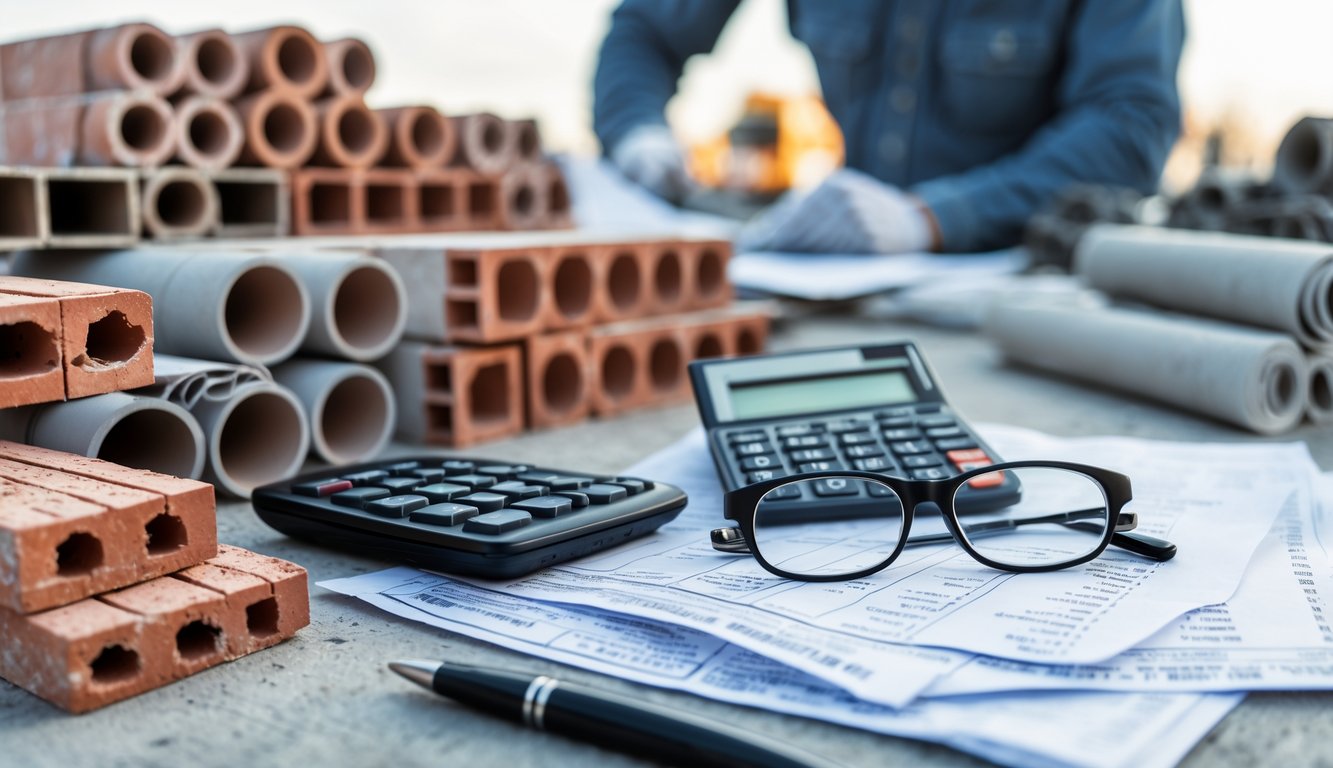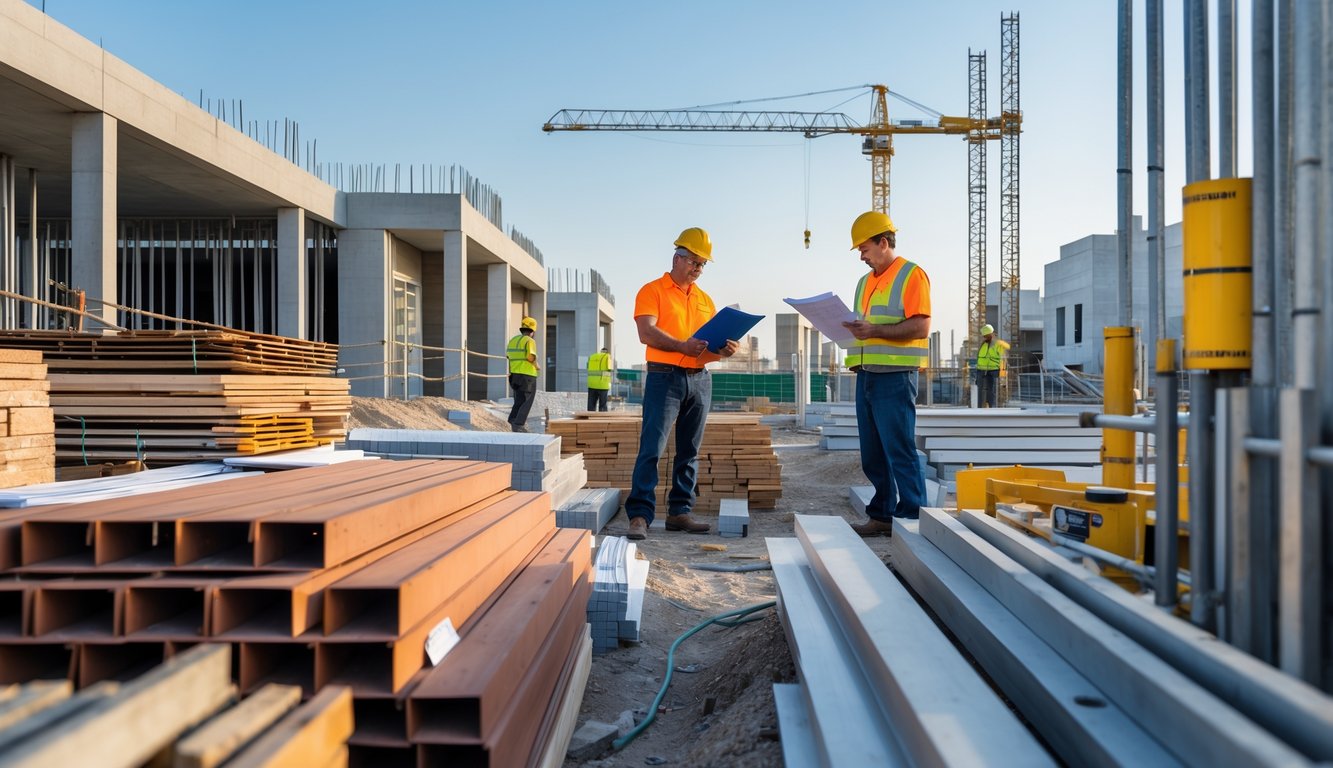
The Impact of Utilities on Overall Project Costs

I swear, just when I think I’ve tracked every expense, utilities pop up and wreck my spreadsheet again. Hidden utility costs sneak into both the build and the lifetime of the place, draining budgets and blindsiding even the pros.
Connection and Installation Fees
Nobody ever warns you about the price just to get water or power running. Connection fees for electricity, water, gas—never a “simple line item.” Sometimes it’s a flat fee, but usually, you’re paying for trenching, permits, upgraded meters, road repairs, whatever.
Here’s something ridiculous: last year in Ontario, utility companies charged up to $7,500 just for basic electrical hookups on new lots. I checked the bulletins and industry breakdowns—it’s real. Nobody at the lumber yard mentions this while you’re picking out sheathing.
What’s everyone miss? If you need upgrades—transformers, backflow preventers, pressure regulators for a multi-unit, special conduit for commercial—you’re paying for it. Sometimes “unexpected site conditions” like buried junk or bad soil send costs through the roof. I bet someone profits off the delays, but it’s definitely not me.
Ongoing Utility Charges
Fast forward: you move in, think you’re done, and then utility bills start haunting you. Not just basic power—fuel adjustments, demand fees, facility charges, seasonal spikes, all lurking in the fine print.
Should’ve asked more questions. Recurring utility costs eat margins if you ignore them. FasterCapital says utilities can eat up more than 7% of annual project costs for standard low-rise homes, especially with high-efficiency heat pumps or EV chargers.
Some builders track tariffs by provider, even use rate aggregation tables—columns for “Provider,” “Service,” “Rate per Unit”—to try to budget. My personal nightmare: misreading a contract, finding a “green energy surcharge” after the fact, wondering if I’m being punked. I just want one bill, ever, to match my estimate. Is that too much?
Labor Costs and Contractor Markups
Let’s just say labor costs love to nuke my project budget, but it’s never only labor. Contractor markups sneak in like some invisible tax—nobody brings it up when we’re picking tile, but it matters almost as much as the sticker price.
How Labor Costs Add Up
Swinging a hammer yourself? Yeah, right. Labor looks fine on the proposal, but start multiplying hourly rates by “man hours” and suddenly I’m staring at a number that wasn’t even in my nightmares yesterday. Skilled labor hits $35–$60 an hour, more if you’re in a city or need specialty certifications.
Union rules? They tack on premiums for “off-hours,” but nobody tells you that up front. CFMA says builder pre-tax profit barely cracks 2%, but subs still sneak in a buffer. Debating overtime charges after the drywall’s up? Pointless.
Contractor Fees and Hidden Margins
“Markup” sounds harmless, but it bleeds into every line. Contractors tack on 10–30%—industry folks say 20% is standard. Ask about it, they shrug. “Covers overhead. Risk.” Coffee runs, maybe?
Material markups are brutal: 30% over invoice isn’t rare, especially for lumber or proprietary stuff. Written bids dance around, hiding what’s profit and what’s actual cost. Contracts bury “admin” or “management” fees, and catching them before you sign? Good luck. My trick: demand itemized breakdowns, but expect some side-eye. At least you’ll know why a wall switch cost $350.
Closing Costs and Final Account Surprises
Closing should be easy, right? Sign, shake hands, done. Nope. Paperwork and surprise charges keep popping up, long after. My checklist is worthless—mortgage rates shift, approvals stall, and closing costs on a build become this blurry, moving target.
Breakdown of Standard Closing Fees
I always think I’m ready; my spreadsheet has a column for everything—title insurance, processing, those infamous recording charges. Still, the final total laughs in my face. National data says closing costs swing between 2% and 7% of the purchase price—almost $30,000 on a $449k home.
Try explaining “loan origination fees” to a friend—they’ll just stare. I’ve seen “courier fees” for digital docs and “processing” on e-signatures, which makes no sense. A retired banker told me to demand a breakdown before closing, not at the table. Out of everyone I know, not one got a final bill that matched their estimate.
Unexpected End-of-Project Expenses
You breathe out, think it’s over, then—bam—surprise charges after the build. Track builder credits, last-minute lien releases, permit fees nobody warns you about until the final draw. My countertop installer once vanished, then reappeared with a new invoice weeks late. At least 91% of buyers, says Zillow Trends 2024, got hit with extra charges at closing. Makes me feel less cursed.
Funniest part? I got billed for trash haul twice—once in the GC’s bid, then again by the sub. Closing statements cram in random fees: HOA transfers, county filings, “expedited” title searches. None huge, but together? Impossible to predict the last number, especially if your mortgage rate lock expires or the lender’s wire fee pops up like a cockroach. No trick dodges all this; I just have a junk drawer full of notes and a deep suspicion of “final account” promises.